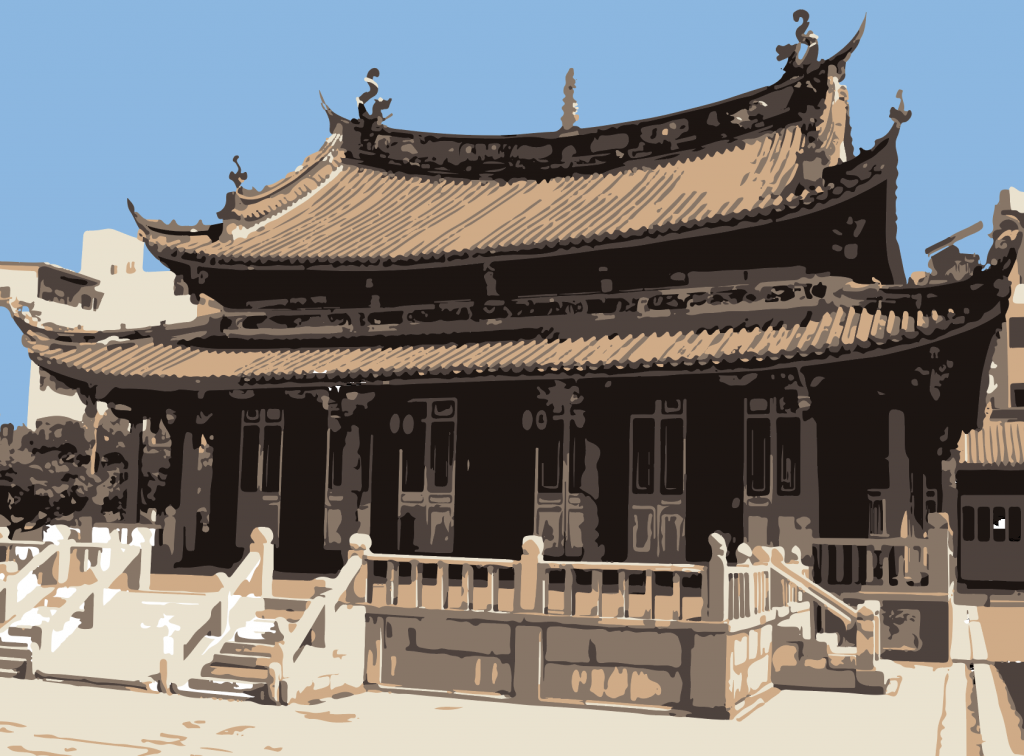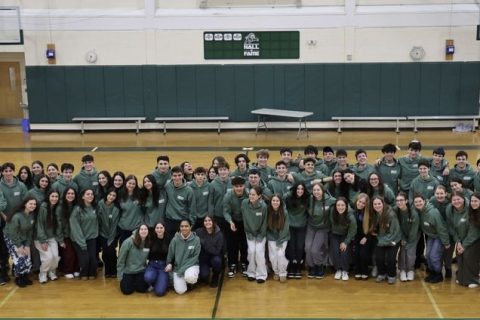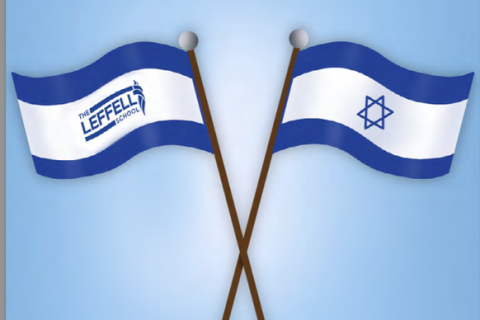by Lily Jacobson

Do you ever sit in history class and wonder what it would have been like to hold a government seat as a powerful leader? Meet “Reacting To The Past,” an immersive course that allows students to play the role of government officials during pivotal moments in history.
In World Civilizations, freshmen spent three weeks taking part in a contest involving collaboration, manipulation and hard work. Each student was given a different role in the Ming Dynasty bureaucracy in China with different objectives. Throughout the game, students wrote two speeches outlining their views about the government and its actions using evidence from “Confucian Analects,” an ancient Chinese book composed of a large collection of sayings and ideas attributed to the Chinese philosopher Confucius, which was the main document source and reference sheet. By the end of the game, each student either won or lost depending on the alliances they made and the fulfillment of their winning objectives.
In 2008, high school history teacher Harry Shontz first learned about “Reacting To The Past,” a college program that is taught at universities across the country.
“I really liked the idea behind it and I wanted to try to bring it into the high school setting,” Shontz said.
Over the years, Shontz approached different professors but they all turned him down. Eventually, Dr. Kate Craig, a medieval history professor at Auburn University, offered to work with Shontz to give it a try.
Shontz and high school history teacher Lea Silverstein adapted this course that is usually taught at the college level into a three-week game for high school freshmen. They turned a large assignment for college students into smaller steps. They spent the first week going over the rules and texts, so students could become acclimated to the history. The freshmen were provided with graphic organizers to track alliances and specific Confucian analects. For the first couple of days, the teachers met individually with each student to answer any questions about their specific role sheets and objectives.
“There was a lot of anxiety as far as the build-up,” Silverstein said. “It just came to a point where we put in so much work creating all of these documents that at some point, you just need to launch the ship from the port and let the cards fall into place”.
Throughout the game, all of the classes were using Slack, a messaging application with chat rooms organized by topic, private groups and direct messaging. This platform enabled the students to make private alliances with each other, ask teachers questions and receive quick responses. Throughout the entire game, the freshmen sent a total of 30,000 messages on Slack.
“We were all on Slack for way longer than we should have been because we were so excited and it was so much fun for us to do,” freshman Hannah Mani-Abraham said. “Slack was a really good way to make sure we were keeping in touch and we knew where we were in regards to the game.”
Rather than learning in a traditional class setting, this type of game allowed students to be placed in a certain period and into the shoes of the people who were there.
“We really wanted to show students that history is not just a predetermined list of events, it is a series of decisions that are made by different groups of people and one person can completely change the course of history,” Shontz said. “I think each of the five classes playing out in their own way is a testament to that.”
Shontz’s fears were avoided, as the students found themselves intrigued in their studies of various aspects of medieval Chinese history.
“I thought it was a great way to immerse ourselves in the ways of the Ming dynasty,” Mani-Abraham said. “I think it is an effective way to learn history because we got a better understanding of how difficult decision-making was in reality.”
Shontz and Silverstein received some constructive feedback from students for future reacting games.
“There are a few roles that have a few additional objectives,” Shontz said. “I think a solution would be crafting more individualized roles where your main objective is not just the objective of your faction.”
Next year, Shontz will be teaching a course for seniors based on reacting games. This class will be called “Gaming the Government,” and there will be three games: one on ancient Athens, one on the French Revolution and another on the independence movement in India. There will also be a sophomore course taught about the Constitutional Convention.
“I think it worked really well in this particular school because we are a smaller community with high student motivation, which 100 percent made the ship sail,” Silverstein said. “I’m excited about what will hopefully be more reacting to the past games.”




